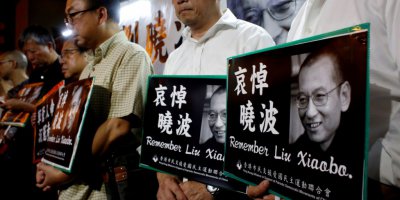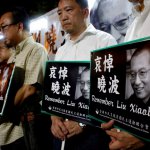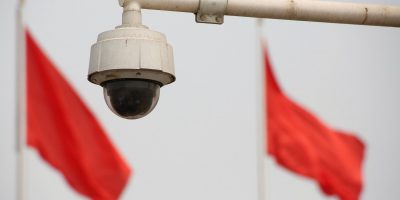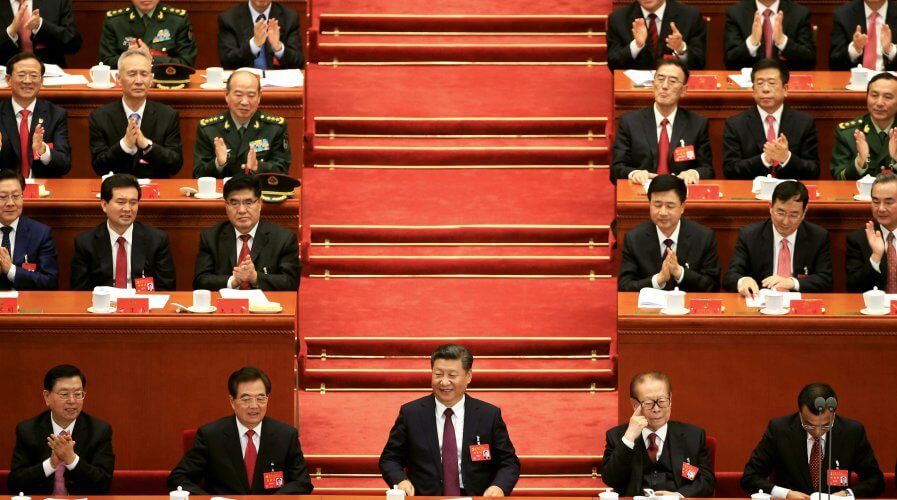
Xi (centre, standing) during the opening of the 19th National Congress of the Communist Party of China at the Great Hall of the People in Beijing, China, on Oct 18, 2017. Source: Reuters
Xi Jinping’s reign has been terrible for the free Internet
IF there were hopes that the ascension of Xi Jinping five years ago could have had a significant impact on the strictures around China’s censorship machine, they were all dashed slowly, but surely since the president started at the helm of the People’s Republic.
Today, China is in the middle of a harsh crackdown on civil liberties and the right to free speech. Both its citizenry and foreign companies trying to eke out a future in the country have seen their efforts cross paths with the nation’s strict censors.
Xi Jinping’s rise to the top of the country’s government prompted many to hope that he would take after his revolutionary father and guide the country into its next chapter. However, under Xi China has experienced its most repressive era yet. As the economy slows, the Chinese Communist Party (CCP) is looking to choke off the dissemination of external information in order to maintain control over an increasingly open China.
It’s perhaps ironic that the country is at its most cosmopolitan even as it struggles under the choke of government censors.
“Xi Jinping has definitely been a turning point in terms of the degree of censorship that is happening in China,” said Charlie Smith, who founded Greatfire.org, to Bloomberg. Greatfire.org is an organization that finds ways around government restrictions.
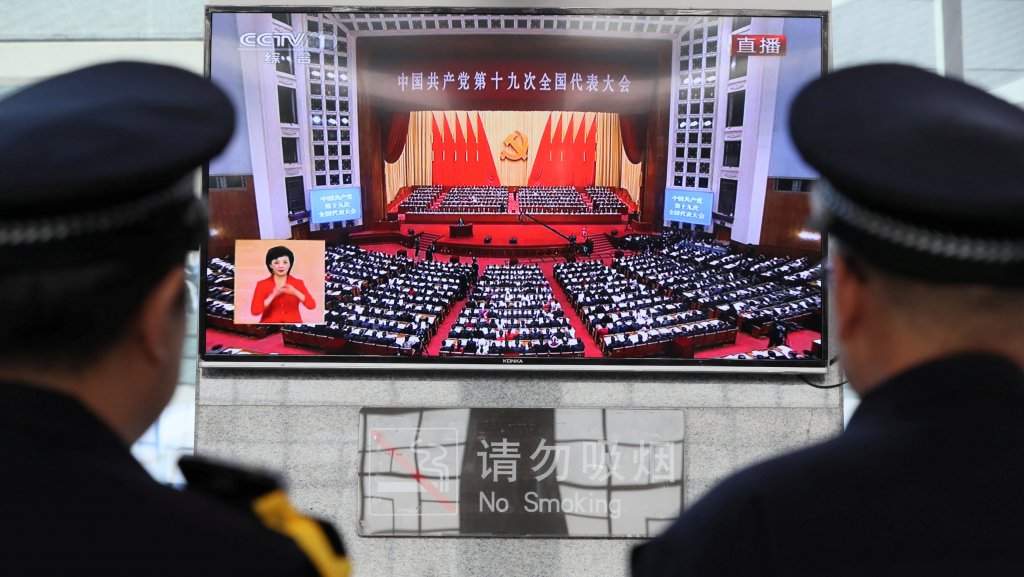
Policemen watch a broadcast of Xi delivering his speech during the opening of the 19th National Congress of the Communist Party of China, as they stand guard at a railway station in Yuncheng, Shanxi province, China, Oct 18, 2017. Source: Reuters
“He is the first Chinese leader to truly understand the power of the Internet and hence, we are seeing an unprecedented crackdown on dissenting information,” said Smith, who uses a pseudonym for fear of government reprisals
Xi has built for himself an incredibly strong position in his government, potentially the strongest since Chairman Mao, according to CNN. The ongoing 19th Communist Party Congress is widely seen as the stage for Xi’s next move to consolidate his power base by filling the Politburo – the highest ranking committee in government – with supporters and loyalists.
How did Xi get there? A combination of good economics, strong stances against rebellious territories like Taiwan and Hong Kong, and good politicking certainly brought him there – but at the center of it all has been a shrewd eye towards controlling the narrative surrounding him and muzzling his critics.
A country buzzing with the energy to perform the next Great Leap into the digital future has seen its freedom to roam and innovate curtailed for spreading information, connecting to the world beyond its borders and owning technology the government wants. The so-called “Great Firewall” has seen its loopholes plugged and many of its foremost government critics arrested. A national beast made up of professional censors, investment in cybersecurity education and a handful of laws aimed at systematically choking out any freedom has been set up in the shadows of government.
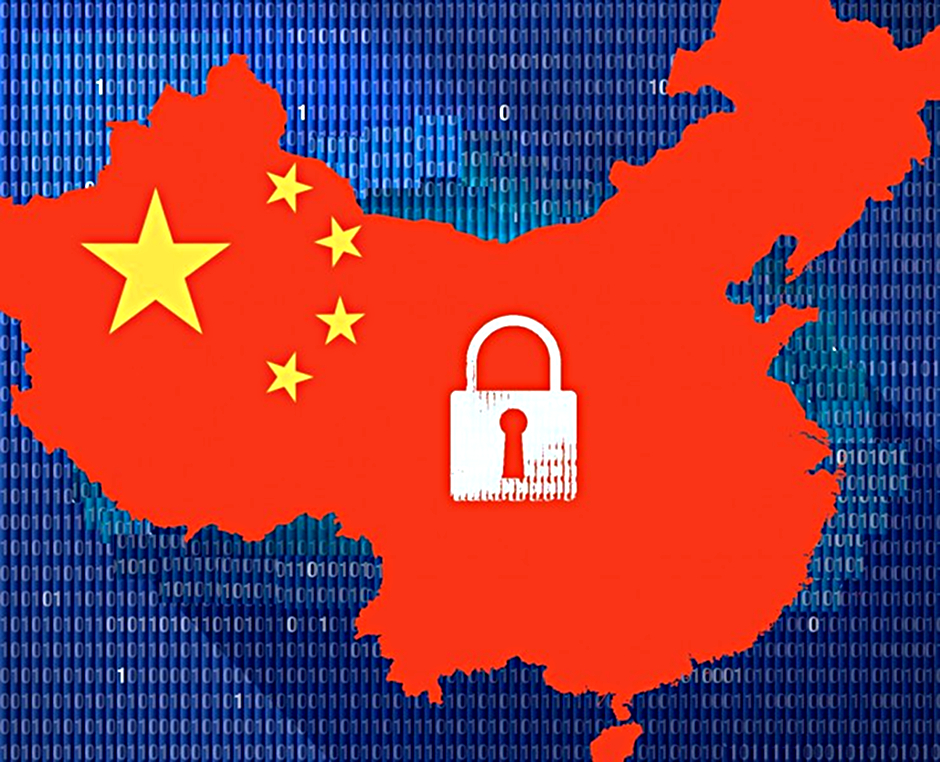
The Great Firewall gets stronger
It’s not surprising that foreign sites have gotten blocked in China, but what’s interesting is that many of world’s most popular sites got blocked either just before or after Xi ascended to the presidency back in 2012. Twitter, YouTube and Facebook got the boot back in 2009, but the post-2012 era saw the banning of most of Google’s applications, Chinese Wikipedia, Tumblr, Instagram, PirateBay, Pinterest, and many notable foreign news outlets including The New York Times, Reuters, and the BBC.
Some critics have said that the blocking of foreign competitors has helped boost the popularity and strength of the country’s homegrown Internet conglomerates: Tencent, Baidu and Alibaba, collectively known as (BAT). These players have been growing on the back of the 1 billion-strong population of the Republic, virtually unchallenged, which has fed their ability to expand aggressively into other parts of Asia as they have been doing for the last year.
These companies and others have also been roped into the government’s censorship work. Many of them already implement their own technologies that automatically censor certain content in order to avoid having their services blocked in the country. Authorities said that 3,918 websites have been shut down in the second half of 2017.
Even local sites from the darlings of the economy haven’t escaped the long arm of the law: Weibo, Tencent and Baidu have all had their social and news services fined for improper regulation for “spreading information that’s violent, pornographic or a danger to national security”. Last month, foreign instant messaging app WhatsApp finally got the axe after months of back and forth.
Tencent attached a child-lock on its own wildly popular Honor of Kings mobile game in response to complaints from authorities; while Sina Weibo, the popular micro-blogging site, has implemented some forms of censorship on its platform. Baidu is reportedly building an application that would make it easier for censors to correct “online rumors”, while a Chinese knockoff of Wikipedia has been launched to peddle government-approved information.
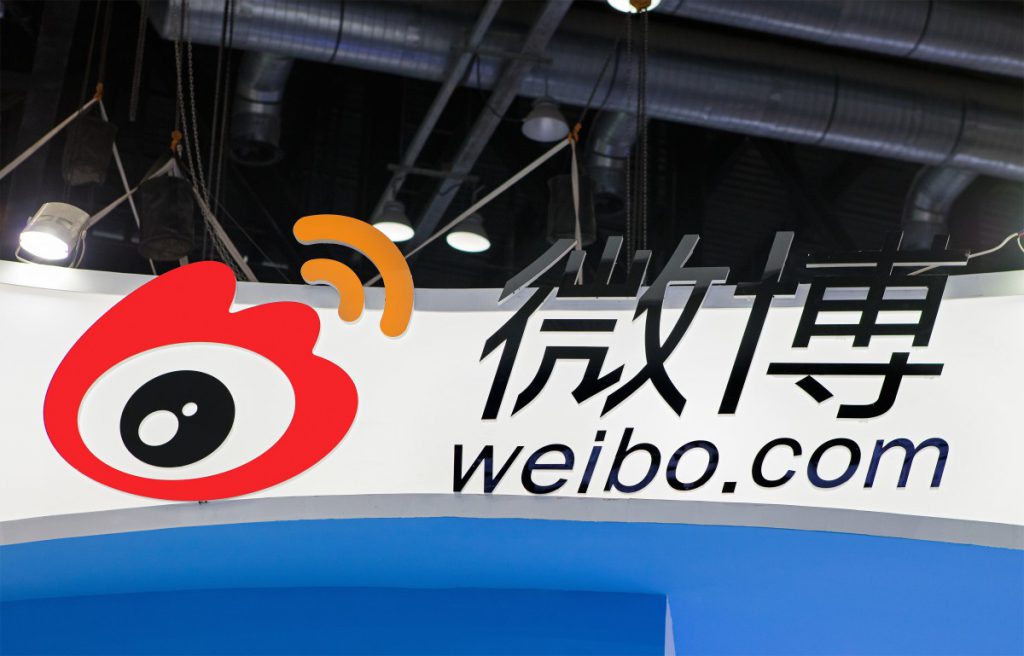
Weibo was founded in 2010, and is widely used by Chinese netizens. It has been fined by authorities for not complying with censorship rules. Source: Shutterstock
All of these moves have been plotted to strategically control points of dissent and information dissemination that might occur throughout the country’s ecosystem. There’s also signs of these kinds of actions moving into the private world: businesses have been set up for the express purpose of creating armies of censors.
“China has become far bolder and more strategic in its approach to a very old and familiar objective, which is to shore up political control through controls on information,” said David Bandurski, co-director of the China Media Project and a Richard von Weizsäcker fellow of the Robert Bosch Academy in Berlin, to Bloomberg.
“The world of media has expanded dramatically to influence every aspect of society, and so the Party feels it must centralize and double-down on control.”
Foreign firms get spooked
The recently passed Cybersecurity Law rightfully worried many foreign firms with business in China. Protectionist laws in China require foreign firms to partner up with domestic companies to the extent of sharing their intellectual properties. The government also enacted new regulations that required data and information from both parties to be stored in domestic servers and made available to authorities on request.
Though the party line is that such measures have been put into place in order to ensure that
For many foreign firms, the allure of China is too strong to ignore; the country’s rich consumer base and untapped potential continues to draw them to invest in the country. Facebook’s Mark Zuckerberg continues to chisel away at the platform’s ban in the country, while Apple is actively courting authorities with data centers and local appointees as sweeteners.
Apple went as far as to delete virtual private networks (VPNs) from the App Store for the appearance of compliance.
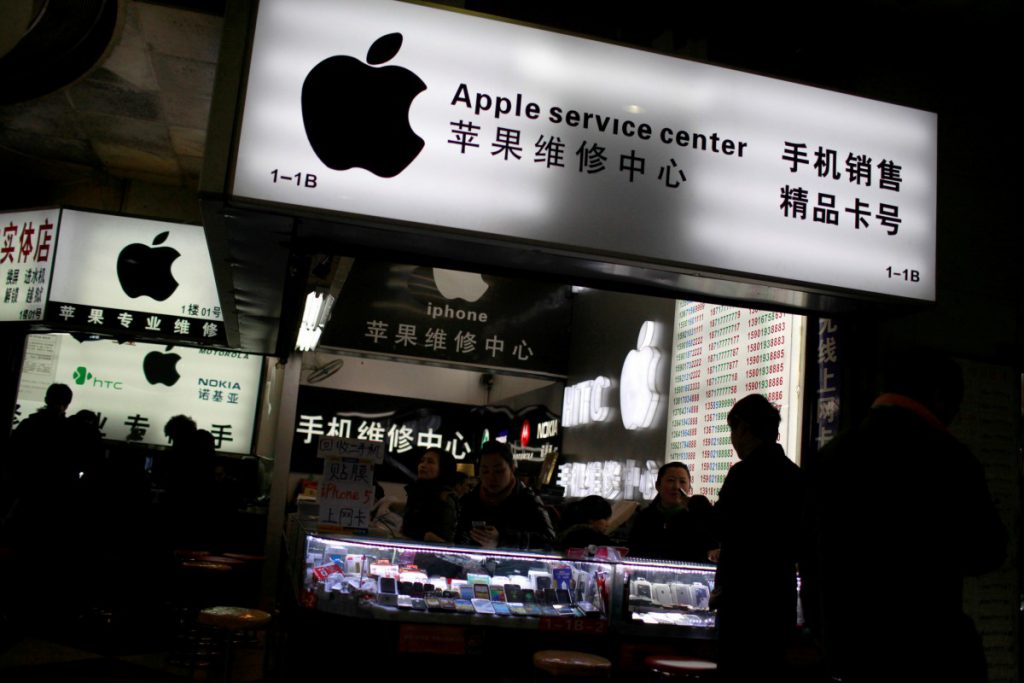
Apple capitulated to demands from the Chinese government by removing several VPNs from its App Store as the company courts censors’ favor. Source: Reuters
“The trouble is these companies are torn between outrageous requirements like handing over source codes, which they’ve never had to do anywhere else in the world, and the reality of 1.3 billion potential customers,” said Scott Thiel, a partner at DLA Piper, to Bloomberg.
“So there’s a real economic tension where you just don’t want to abandon the market.”
Under Xi, the have been totally shut down, rather than undergoing intermittent blackouts. VPNs are crucial not only for the casual Internet users looking to access foreign content, but is a key tool used by foreign workers who use specialized communications with their overseas colleagues.
VPNs have allowed people to access Google and Facebook periodically, but the increasingly unfettered use of censoring has resulted in even local livestreaming stars and soap operas being blocked.
As Xi continues to build on his power base, it’s conceivable that things are only going to get worse from here on. Last month, authorities threatened Weibo and WhatsApp operators with arrest if they didn’t comply with regulations. As the Congress continues on, more and more Internet freedoms will likely come to an end.
“We will provide more and better online content and put in place a system for integrated internet management to ensure a clean cyberspace,” Xi said at the Congress.
“We will distinguish between matters of political principle, issues of understanding and thinking, and academic viewpoints, but we must oppose and resist various erroneous views with a clear stand.”
READ MORE
- Is your Japanese website not performing in China? Baidu can help with that
- Skype gets booted out of Apple’s App Store on Chinese orders
- VPNs help Chinese abroad peer over the Great Firewall
- China is industrializing censorship ahead of Communist Party Congress
- Chinese social media hit with massive fines for spreading porn and fake news







